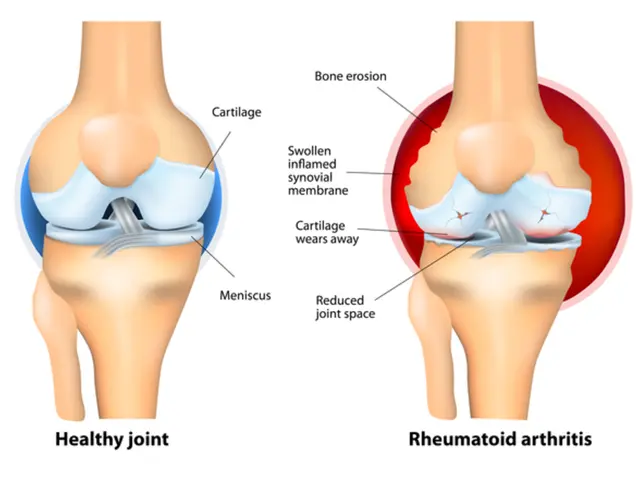HIV Medications Could Provide Notable Defense Against Alzheimer's
Scientists are buzzing about a potential breakthrough to combat Alzheimer's disease – a shocking discovery linking HIV drugs called nucleotide reverse transcriptase inhibitors (NRTIs) to a lower risk of developing Alzheimer's.
According to researchers at UVA Health, these medications could significantly reduce the risk of Alzheimer's by up to 13% per year. Motivated by the 6 million Americans currently affected by the disease and expectations that the number could double to 13 million by 2050, along with astronomical associated costs, the team is urging clinical trials to test whether these drugs could be utilized as a game-changing preventive treatment.
The researchers found that people taking NRTIs have a markedly lower risk of developing Alzheimer's. Intriguingly, this reduction in risk was specific to the NRTIs and not observed in those using other types of HIV medications, leading the team to believe that NRTIs should be put through clinical trials to determine their potential for Alzheimer's prevention.
Exploratory research by Jayakrishna Ambati and colleagues discovered that NRTIs, which block inflammasomes, a key immune system component previously linked to Alzheimer's development, could play a protective role against Alzheimer's.
Identified Potential beneficiaries
After examining two major U.S. health insurance databases – 24 years of records from the Veterans Health Administration and 14 years from the MarketScan database – the team identified over 270,000 qualifying patients, focusing on those ages 50 and older who were being treated for either HIV or hepatitis B and had no prior diagnosis of Alzheimer's.
Dr. Ambati and his team found that the risk of developing Alzheimer's dropped by 6% per year in one dataset and by 13% per year in the other for those on NRTIs.
A promising future for Alzheimer's prevention
The financial burden of Alzheimer's disease is projected to reach nearly $1 trillion in the coming decades, according to the Alzheimer's Association, making a preventive treatment more urgent than ever.
In light of the findings, Jayakrishna Ambati explained, "a 10% reduction in risk could have a dramatic effect on the impact and burden of Alzheimer's." Dr. Ambati also mentioned the development of a modified version of NRTIs called K9 for eye diseases, aimed to be utilized in Alzheimer's trials in the future.
According to James Giordano, PhD, adjunct professor of neurology and biochemistry at Georgetown University Medical Center, the observed correlation between NRTIs and reduced Alzheimer's risk offers a "directions for the development of NRTI-type drugs and molecular agents aimed at mitigating inflammasome development as a viable treatment – or perhaps preventive intervention – for Alzheimer's."
In conclusion, while there are no specific ongoing clinical trials for the use of NRTIs in Alzheimer's prevention, the fascinating data observed in observational studies and the researchers' interest in pursuing clinical trials suggest that such trials will likely be initiated in the future.
- The potential breakthrough to combat Alzheimer's disease involves the use of nucleotide reverse transcriptase inhibitors (NRTIs), a type of HIV medication.
- Scientists at UVA Health discovered that NRTIs could reduce the risk of Alzheimer's by up to 13% per year.
- This reduction in risk was specific to NRTIs and not observed in people using other types of HIV medications, leading researchers to believe that NRTIs should be tested further.
- The team identified over 270,000 potential beneficiaries for these clinical trials, focusing on those aged 50 and older who were being treated for either HIV or hepatitis B but had no prior Alzheimer's diagnosis.
- Dr. Ambati mentioned the development of a modified version of NRTIs called K9 for eye diseases, which may be used in Alzheimer's trials in the future.
- The financial burden of Alzheimer's disease is projected to reach nearly $1 trillion in the coming decades, making a preventive treatment more urgent.
- The observed correlation between NRTIs and lower Alzheimer's risk offers directions for the development of NRTI-type drugs as a potential treatment or preventive intervention for Alzheimer's, according to James Giordano, PhD.







